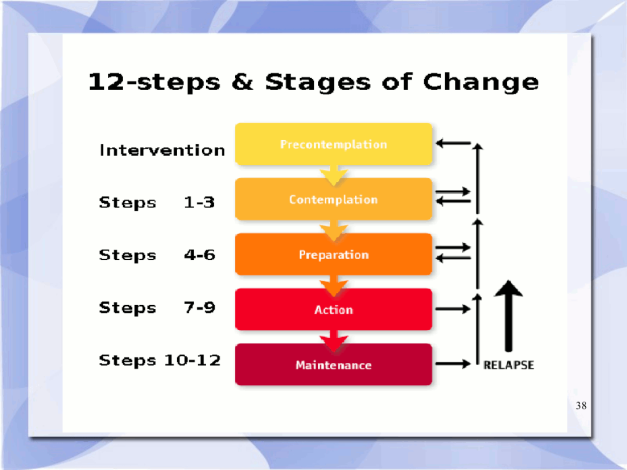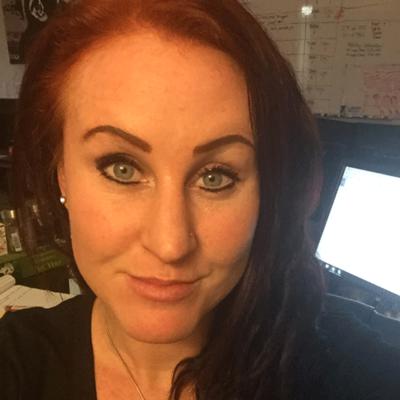Boundaries: Why Are They Important For Building Healthy Relationships In Recovery?
|
Get Help Now! 800.815.3910 Available 24/7 The road to recovery starts here! Trusted, confidential help available 24/7. Speak with an addiction treatment specialist anytime. Please call us now at 800-815-3910! |
Boundaries: Why Are They Important For Building Healthy Relationships In Recovery?
by Rose Landas
I don’t know about you, but in my addiction, boundaries were non-existent. I didn’t even know what boundaries were, actually. Boundaries are a key component of building healthy relationships in recovery. Not only did I not set boundaries for myself, I didn’t respect the boundaries of others. My life, my space, and my world were entwined with those around me. I allowed myself to be taken advantage of. I didn’t expect people to respect my time, my values or my space.
Because I made using a priority in life above everything else, I was surrounded by other people, many of whom made me uncomfortable, who were also all about using. None of us knew how to act or behave respectfully or responsibly. As a result, by the time I got into recovery, I had no idea how chaotic, full of drama and empty my life had become. My self-esteem was non-existent, which only served to make matters worse. I didn’t have any concept of my own worth, and my choices reflected that.
How My Lack Of Boundaries Impacted My Recovery
It would be great if all problems were solved by getting clean and sober, right? For most of us though, that isn’t the case. Of course life gets better, but for myself, there was still a lot of work to do!
Most of my problems in early recovery revolved around two kinds of relationships: Those with my family and old friends, and those with new people I met in recovery. My lack of boundaries was a major factor in my relapse. Let me explain.
It Was Tough Setting Boundaries With Family
It’s interesting — and I don’t think I am alone here — dealing with family after you quit using. Addiction affects the whole family. Of course they wanted me to get help for my “little problem” but they didn’t understand that recovery is a lifestyle, and that I needed to change a lot of things in order to continue to stay sober. I felt a lot of pressure to be around them even when they were drinking. I went to family gatherings even though I didn’t feel safe, and I allowed myself to get sucked into family drama.
The other mistake I made was not cutting ties with some of my using friends. I cared about them, and was so used to having them around that I just didn’t know how to stop.
Not Everyone In Recovery Is Good For You
I was encouraged by my sponsor and therapist to make friends in recovery, but to stay out of romantic relationships. Well, I followed the first suggestion, but not the second.
I also hung out with people in recovery who were new like me. Together, we were kind of a wreck. I fell in with a couple of women who always seemed to need something from me. A ride, a loan, a place to crash. I felt pressured and I felt like my time wasn’t my own.
I started dating a guy who had a few years of recovery. This is pretty common. He seemed to have it together, but it soon became clear that he had no respect for me. He was unreliable, didn’t do the things he said he was going to do, treated me disrespectfully and eventually moved on to someone else.
This last one was too much for me. I had no idea how to set boundaries, and I hadn’t cultivated enough healthy relationships in my recovery to help me through these challenges. I relapsed and fortunately came back pretty quickly. I got a sponsor and she pointed out areas where I needed to strengthen my boundaries. I learned to say “No” to people. I learned to keep unhealthy people at arm’s length. I learned to stand up to my family and set limits with them. I weeded out friends that were not respecting my boundaries and I made friends with healthier, more respectful people.
Big Changes Happen When You Set Boundaries
I think I was afraid of what would happen when I said no to people, or didn’t go along with the crowd, but what I quickly realized is that people respond surprisingly well to your boundaries when you stick with them. My worst fears: Abandonment, conflict, making people angry, didn’t materialize.
Instead, I found that people seemed to take me more seriously, current friends and family seemed to back off and treat me more like an adult, not a child, and I also began attracting more quality people into my life. It’s amazing what healthy boundaries can do for your quality of life and quality of relationships! I highly recommend seeking people out who have healthy boundaries and learning from them.
Resources:
http://psychcentral.com/lib/the-importance-of-personal-boundaries/
http://www.glassmanpsyd.com/the-importance-of-boundaries/
About the author
Rose Landes is passionate member of the recovery community. A rebel who found her cause, she uses blogging and social media to raise the awareness about the disease of addiction. She has visited all over North and South America. Single mom to two beautiful children she has learned parenting is without a doubt the most rewarding job in the world. Currently the Outreach Director at Stodzy Internet Marketing.
and Finally Remember:
“Ask and it will be given to you; seek and you will find; knock and the door will be opened to you. For everyone who asks receives; he who seeks finds; and to him who knocks, the door will be opened.”
– Matthew 7:7-8
Recent Articles
-
Addiction 101, a simplified introduction to recovery.
Sep 18, 17 03:03 PM
Addiction 101 is a course we offer that explains basic information about drug addiction and recovery for those trying to understand it and combat it.
-
What are the financial and psychological effects of drug abuse
Sep 18, 17 08:53 AM
What are the financial and psychological effects of drug abuse?
-
Help Line
Sep 14, 17 12:46 PM
Our Help Line holds a free weekly addiction support group Monday Night at 6:00 pm eastern time, where you’ll learn how to help yourself or your loved one to end their addiction.

** We’re also launching four new
classes which will help you learn how to use motivation, affirmation
and encouragement to end addiction in yourself or a loved one. Each
class will focus on an evidence-based concept, explaining how to illicit positive
change
in yourself or in someone you love.
We will teach you practical techniques that
research has shown to be effective for achieving change and successfully ending addiction.
We’ll begin offering these classes this September through Learn-It-Live (Learn-It-Live is easy to use teaching tool and you don’t need to download anything to use it). Click Register Now! below to join one of our classes. The registration process includes setting up an account, but you determine your screen name to protect your confidentiality.
Four new addiction classes:
 |
– Addiction 101, a FREE 60 minute course introducing key substance addiction recovery concepts. This seminar examines many aspects of drug addiction, including symptoms and treatment. It also introduces the Stages-of-Change as a building for recovery. It will be held on October 3 at 6:00pm central-time. |
Addiction 101 Register Now!
|
|
 |
– Intervention, introduces you Change-Talk as an alternative to “tough-love”. Change-Talk is a method, which you can learn, to get an addict to move away from their addiction and toward recovery. This is a 2-hour class that meets October 5, at 10:00 am central-time at a cost of |
Intervention
|
|
 |
– Change-Talk, a building-block for addiction recovery. This course |
Change-Talk Register Now! |
|
 |
– Effective Conversations, teaches how to use conversation to connect for recovery. Productive, change-focused conversations facilitate positive change and addiction recovery. This is a 4-week, 60 |
Effective Conversations Register Now! |




